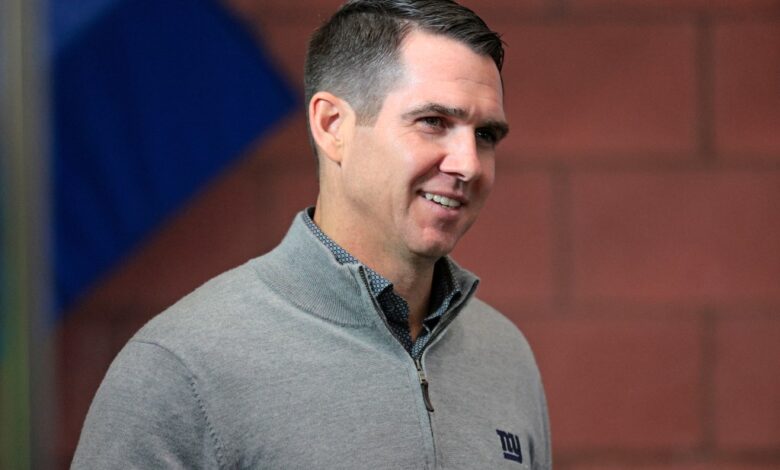what it means for Giants, Jets

The NFL must have hit a few jackpots during Super Bowl week in Las Vegas.
The salary cap for the 2024 season received a historic bump and is set at $255.4 million per team, the league announced Friday.
The new number marks an unprecedented year-over-year increase of $30.6 million and puts the cap at more than double where it was about a decade ago ($123 million in 2013).
The number, which is about $10 million-$13 million more than previous estimations, is the “result of the full repayment of all amounts advanced by the clubs and deferred by the players during the COVID pandemic as well as an extraordinary increase in media revenue for the 2024 season,” according to the league.
There will be an additional $74 million per team available for player benefits, including Performance Based Pay bonuses and benefits for retired players, as part of the approximately 48 percent of league revenues awarded to players.
“Welcome to the new era of gambling being accepted in the NFL,” said former NFL general manager Randy Mueller, an analyst for The Athletic. “Players should thank [commissioner] Roger Goodell for new international exposure and leaning into the wagering world. It has increased the pie for players to unheard of heights.”
So, what is the end result?
It’s an especially good time to be a free agent because more teams can engage in bidding wars now that more than half of the league (17 teams) has at least $30 million in salary-cap space, according to overthecap.com.
That means the top-of-the-market deals at several positions could be reset and a rising tide will lift the boat for lesser players.
Take, for example, the most prominent free agents in New York.
The $1 million-2 million gap in guaranteed money that prevented running back Saquon Barkley and the Giants from agreeing to an extension last offseason seems even more like relative peanuts at this point.
If the Giants were to re-offer the deal that Barkley turned down last August — three years, $33 million with about $23 million guaranteed — or even meet his slightly higher asking price, it would account for less of a chunk of the salary cap than it would have last July.
In fact, all running backs — whose contract market has stagnated — might benefit from the influx of resources at a time when many top runners are free agents.
The prices for franchise tagging Giants safety Xavier McKinney ($17.1 million) and Jets defensive end Bryce Huff ($21.3 million) also are less exorbitant in light of the new salary cap.
While the Jets have more breathing room than expected ($15 million) to offer an extension to Huff before free agency opens March 11, it also means competitors have more money to spend on luxuries like a situational pass-rusher if he reaches the open market.
If the Giants put a transition tag on McKinney to maintain the right to match any free-agent contract offer that he receives, as The Post previously reported is under consideration, the cost will be $13.8 million in 2024 and far from the top of a positional market that could grow beyond the current top of $19 million per year.

From a team perspective, contracts like the early extension signed by Giants All-Pro left tackle Andrew Thomas through 2029 only should become a bigger bargain as the cap grows and contracts for comparable players get larger.
And swallowing dead-cap charges, like Giants quarterback Daniel Jones’ $22.2 million if traded or released in 2025, is more manageable when it is a smaller percentage of the overall cap.
The bigger pie also should help players who were on the bubble to be salary-cap casualties in situations where teams are looking for extra savings.
It might not spare someone such as Giants guard Mark Glowinski — who lost his starting job after Week 1 last season — but could save the likes of productive players such as Jets defensive end John Franklin-Myers from the wrong side of a numbers game.
The Chiefs, who also were pressed against the cap, suddenly could have the room to re-sign both Chris Jones and L’Jarius Sneed instead of choosing between their two free-agent defensive studs.
If there is a rash of re-signings like those over the next two weeks, it will thin the free-agent class for teams who need to patch holes in their rosters.




